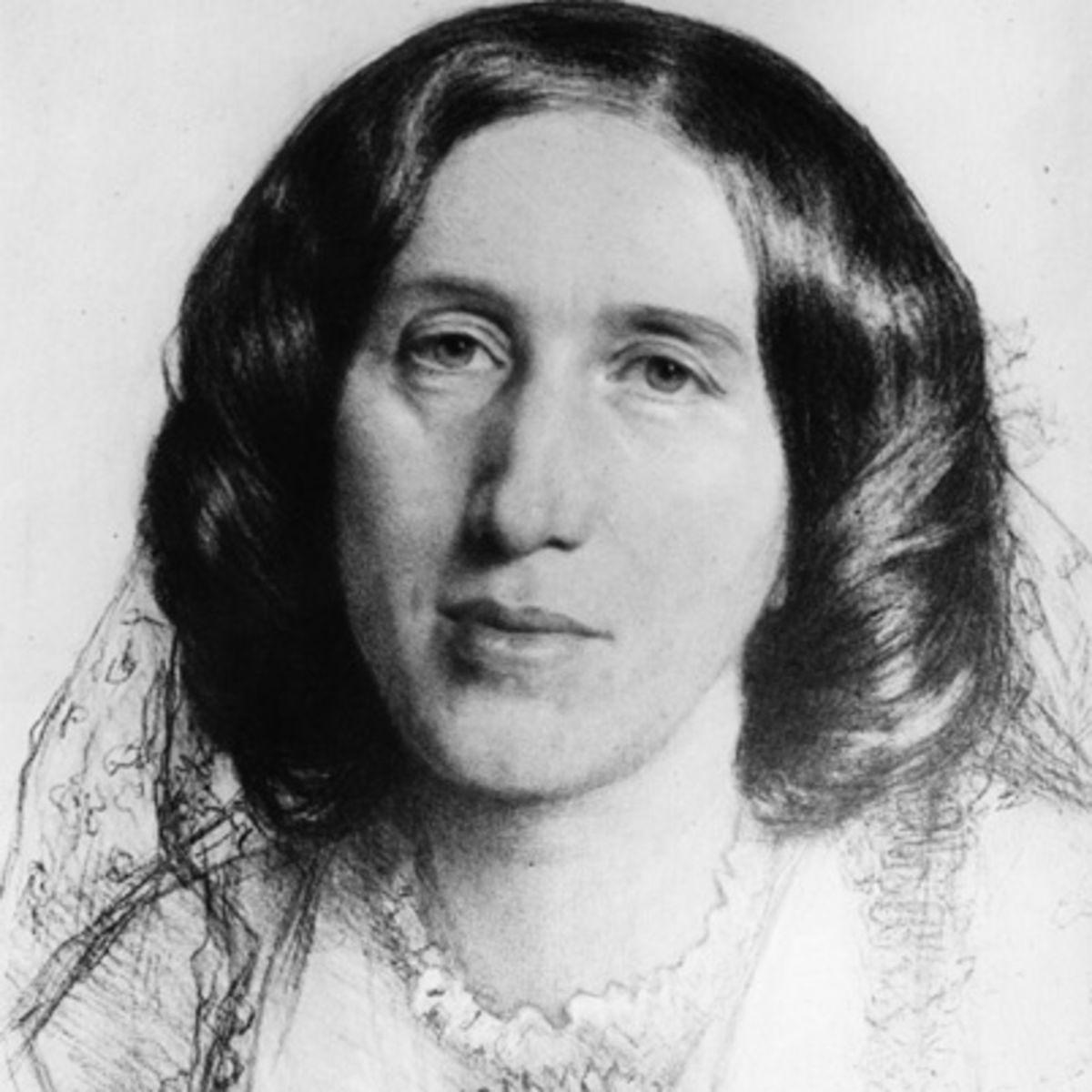On first reading this at school in 1977, it took me a while to get fully involved in the narrative. By half way through I wondered if there could ever be a more subtle and penetrating novelist than Mary Ann Evans. 40 years later I’ve not read any fiction finer than that of George Eliot (nom de plume) at the height of her powers.
Writing at the very moment when the foundations of Western thought were being challenged and undermined, George Eliot (http://en.wikipedia.org/wiki/George_Eliot ) fashions in Middlemarch (1871-2, http://en.wikipedia.org/wiki/Middlemarch) the quintessential Victorian novel, a concept of life and society free from the dogma of the past yet able to confront the scepticism that was taking over the age. In a panoramic sweep of English life during the years leading up to the First Reform Bill of 1832, Eliot explores nearly every subject of concern to modern life: art, religion, science, politics, self, society, and human relationships. Among her characters are some of the most remarkable portraits in English literature: Dorothea Brooke, the heroine, idealistic but naive; Rosamond Vincy, beautiful and egoistic; Edward Casaubon, the dry-as-dust scholar; Tertius Lydgate, the brilliant but morally flawed physician; the passionate artist Will Ladislaw; and Fred Vincy and Mary Garth, childhood sweethearts whose charming courtship is one of the many humorous elements in the novel’s rich comic vein. Looking to read the greatest novel in the English language? Look no further.
Begin a lifetime of George Eliot appreciation with the following:
Swinden, Patrick, ed. (1972). George Eliot: Middlemarch: A Casebook. London: Macmillan (http://www.amazon.co.uk/George-Eliot-Middlemarch-Casebooks-Series/dp/0333058380/ref=sr_1_1?ie=UTF8&qid=1388582161&sr=8-1&keywords=swinden+george+eliot)
Daiches, David (1963). George Eliot: Middlemarch (http://www.amazon.co.uk/George-Eliots-Middlemarch-David-Daiches/dp/B007QTG6G0/ref=sr_1_3?ie=UTF8&qid=1388582078&sr=8-3&keywords=daiches+george+eliot)
Beaty, Jerome (1960). Middlemarch from Notebook to Novel: A Study of George Eliot’s Creative Method (http://www.amazon.co.uk/Middlemarch-Notebook-Novel-Creative-Political/dp/0313224129/ref=sr_1_1?ie=UTF8&qid=1388582032&sr=8-1&keywords=jerome+beaty+george+eliot)
Neale, Catherine, Middlemarch: Penguin Critical Studies, London, Penguin, 1989. (http://www.amazon.co.uk/Middlemarch-Critical-Studies-Catherine-published/dp/B00EKZ0LGE/ref=sr_1_2?ie=UTF8&qid=1388581943&sr=8-2&keywords=neale+george+eliot)
Carroll, David, ed. (1971). George Eliot: The Critical Heritage. London: Routledge & K Paul. (http://www.amazon.co.uk/George-Eliot-The-Critical-Heritage/dp/0710069367/ref=sr_1_3?ie=UTF8&qid=1388581879&sr=8-3&keywords=carroll+george+eliot)
Bennett, Joan (1966). George Eliot: Her Mind and Art (http://www.amazon.co.uk/George-Eliot-Joan-Bennett/dp/B0010VJPTU/ref=tmm_hrd_title_0?ie=UTF8&qid=1388581635&sr=8-3)
A magnificent volume is to be found in The Cambridge Companion to George Eliot (2001, edited by George Levine) (https://www.amazon.co.uk/Companion-George-Cambridge-Companions-Literature/dp/052166473X/ref=tmm_pap_title_0?_encoding=UTF8&qid=1524292514&sr=8-1) This is a set of specially-commissioned essays providing accessible introductions to all aspects of George Eliot’s writing by some of the most distinguished new and established scholars and critics of Victorian literature. The essays are comprehensive, scholarly and lucidly written, and at the same time offer original insights into the work of one of the most important Victorian novelists, and into her complex and often scandalous career. Discussions of her life, the social, political, and intellectual grounding of her work, and her relation to Victorian feminism provide valuable criticism of everything from her early journalism to her poetry. Each essay contributes to a new understanding of the great fiction, from Adam Bede and The Mill on the Floss to Daniel Deronda. This volume with its chronology and extensive bibliographies will launch you further into the journey of love for Eliot.
Further bibliographic detail here http://www.amazon.co.uk/Cambridge-Companion-George-Companions-Literature/dp/052166473X/ref=sr_1_1?ie=UTF8&qid=1388580920&sr=8-1&keywords=cambridge+companion+george+eliot
Enjoy also The Road to Middlemarch: My Life with George Eliot by Rebecca Mead (first published 6 March 2014). At the age of seventeen, Mead (http://rebeccamead.com/) read Middlemarch for the first time, and has read it again every five years since, each time interpreting and discovering it anew. In this book she writes passionately about her relationship to this remarkable, much-loved Victorian novel, and shows how we can live richer and more fulfilling lives through our profound engagement with great literary works. Published when George Eliot was fifty-one, the novel has at its centre one of literature’s most compelling and ill-fated marriages, and some of the most tenderly drawn characters. Its vast canvas incorporates the lives of ordinary people and their most intimate struggles. Virginia Woolf famously described it as ‘one of the few English novels written for grown-up people’, and Mead explores how the ambitions, dreams and attachments of its characters teach us to value the limitations of our everyday lives. Interweaving readings of Middlemarch with an investigation of George Eliot’s unconventional, inspiring life and Mead’s reflections on her own youth, relationships and marriage, this is a sensitive work of deep reading and biography, for every lover of literature who cares about why we read books and how they read us.
Middlemarch was brought to the screen by Anthony Page (screenplay by Andrew Davies) in a 7 episode TV mini series of 1994. (http://www.imdb.com/title/tt0108858/?ref_=sr_1) With Juliet Aubrey as Dorothea Brooke, Robert Hardy as Arthur Brooke, Rufus Sewell as Will Ladislaw, and Patrick Malahide as Edward Casaubon. Available on DVD at http://www.amazon.co.uk/Middlemarch-DVD-Anthony-Page/dp/B00005KB4F/ref=sr_1_2?s=dvd&ie=UTF8&qid=1374309917&sr=1-2&keywords=middlemarch.
BBC Radio 4 covered Middlemarch in an episode of ‘In Our Time‘ with Melvyn Bragg first broadcast on 19 April 2018. (http://www.bbc.co.uk/programmes/b09z1dd7) The guest speakers are Rosemary Ashton (Emeritus Quain Professor of English Language and Literature at University College London), Kathryn Hughes (Professor of Life Writing at the University of East Anglia), and John Bowen (Professor of Nineteenth-Century Literature at the University of York).
For this masterpiece of English fiction enquire at your local library or consult the online catalogue at Home | South Lanarkshire Libraries (sllclibrary.co.uk)




George Eliot – the greatest English novelist
736 pages in Wordsworth Classics paperback edition.
ISBN 978-1853262371


